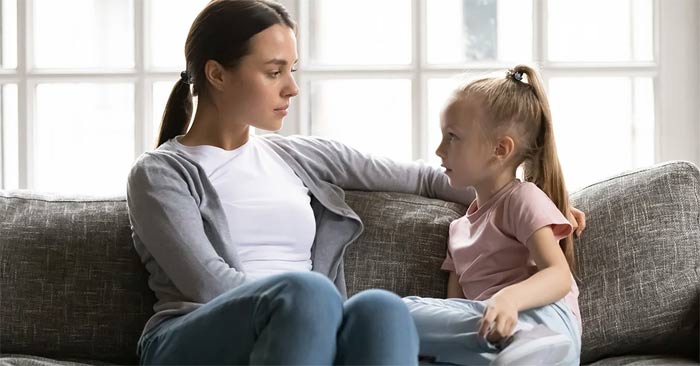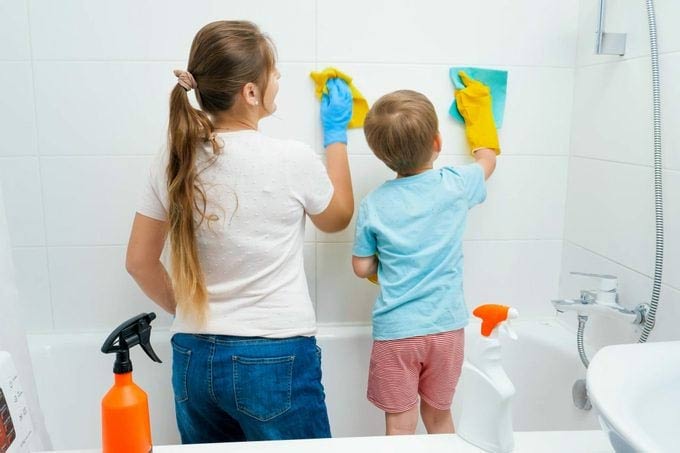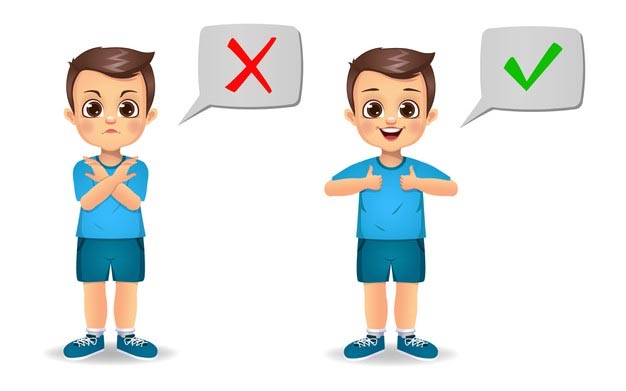Old-fashioned manners that every parent should teach their children
Saying thank you or asking permission is just the "tip of the iceberg" in teaching politeness to children . Below are the basic or minimal politeness that every parent should teach their children from a young age .

Why is it important to teach children manners from a young age?
Many people think that teaching children good manners will limit their development or freedom, but the truth is that it is very valuable for them. Politeness helps children feel more confident in new situations because they know what is expected of them. It also gives children a social advantage, helping them to be more successful in work and relationships.
Moreover, manners are an important part of living in a civilized society. Lack of basic manners will affect children in all areas of their lives later on. Ensuring that your modern children know the following "old-fashioned" etiquette will help them excel over their peers.
Basic manners should be taught to children from a young age
Know when to turn off your phone
Cell phone etiquette is a hot topic in schools, homes, and public places today. Most children, even many young children, have their own smartphones or have easy access to their parents' phones, which means they need to be taught cell phone etiquette as soon as they are old enough to own a smartphone. This starts with knowing when to turn your phone off or on silent mode and when to put it away, such as in movie theaters, places of worship, birthday parties, family dinners, etc.
Using headphones in public
If children are listening to anything with sound in public, they should use headphones. This includes activities like listening to music, watching videos, playing games, or talking to someone on a video call, and in places like restaurants, libraries, stores, and offices. And even then, they should be mindful of the volume. The sound coming from headphones should also be low enough so as not to disturb others. This is basic courtesy that everyone should know.
But instead of aiming for more headphone use, perhaps aim for less phone use. Children need to engage with their environment and be a part of what is going on around them in order to learn. This is crucial for their development.

Help adults clean up
Teaching children to help clean up after a playdate or dinner is important. But it's also important to teach them to help clean up even if they didn't make a mess. Children value fairness and may not want to do things like put away groceries or clean the bathroom at first, but if they benefit from using those things, they'll be more willing to help. Also, encouraging children to help clean up after someone else—say, after a birthday party—is a great way to teach kindness and empathy.
Use napkins
It's understandable for young children to lick their fingers or wipe their hands on their pants (or the table, the wall, or your shirt), but you can teach them to use both cloth and paper napkins early on. Model good table manners by showing them how you place your napkin on your lap and how you use it to wipe your mouth. Children are great imitators - they'll follow suit if you do.
While on the subject, don't forget to teach your child to place their cloth napkin next to their plate, on the left side, when they're done eating. If they use paper napkins, always throw them in the trash.
Including everyone
Being excluded from a party, game, lunch group or discussion is incredibly upsetting for anyone, regardless of age. Children may exclude others around them unintentionally, out of ignorance, or intentionally, because they have social anxiety or simply don't like them. Regardless of the reason, children should be taught to include everyone in activities. This doesn't mean they have to be best friends with everyone or put themselves in dangerous situations, but they should be polite and aware of other people's feelings. This includes teaching them to be aware of the people around them, to speak politely in social situations and to extend invitations.

Say no and thank you
Knowing how to say no politely is an art, and many adults struggle with it. Some children may feel incapable of saying no or may be afraid of disappointing others, while others have no problem saying no but not politely. The key to mastering this skill is practice, so give your child opportunities to practice. Start with low-stakes situations, like saying no to a dish at a restaurant, and work your way up to more difficult situations, like saying no to an invitation to a playdate.
Additionally, all children should be taught to speak up and firmly say no to things that make them feel unsafe. This can help protect them in all situations, with both children and adults. Role-playing can be particularly helpful here.
You should read it
- ★ 8 important things that every father must teach his son
- ★ The story is worth pondering about an American mother who teaches her child to be independent: 'Please don't help my child!'
- ★ How to teach children how to use the mouse?
- ★ Ask your child these 4 questions every day, if you want to understand them better
- ★ The three 'golden' philosophies of Jack Ma, every parent should read so they can be used to teach their children